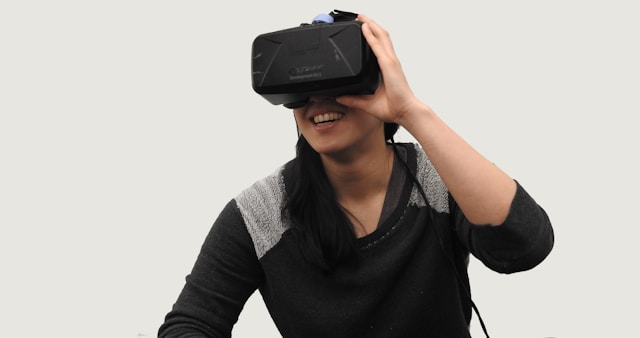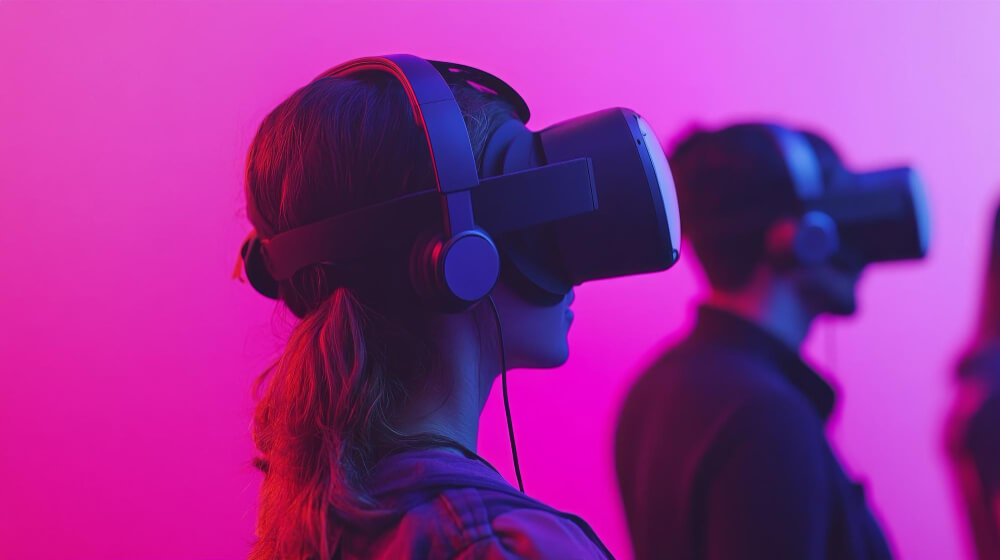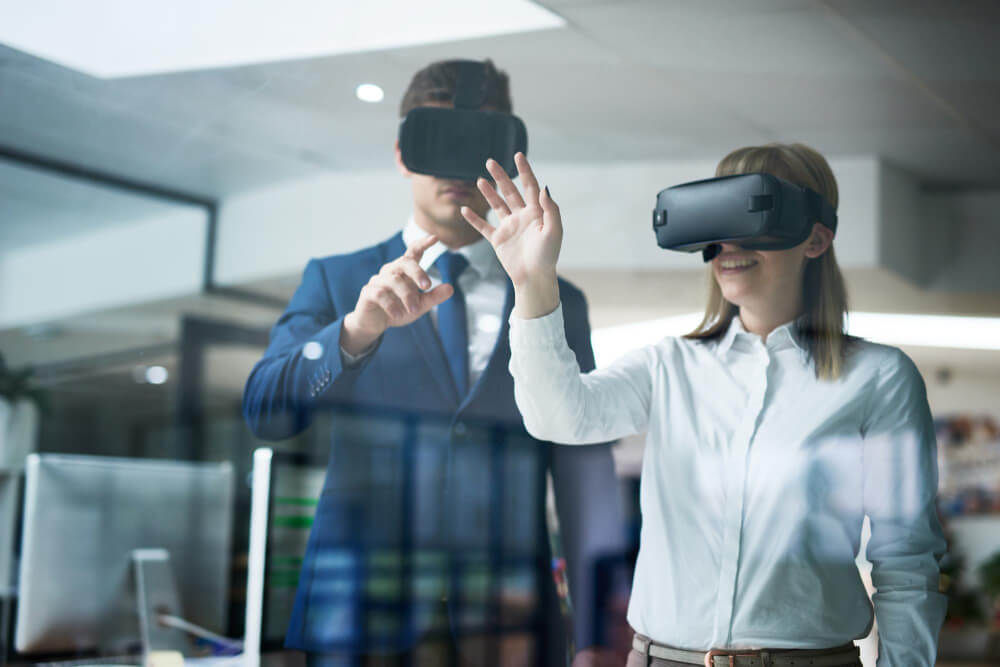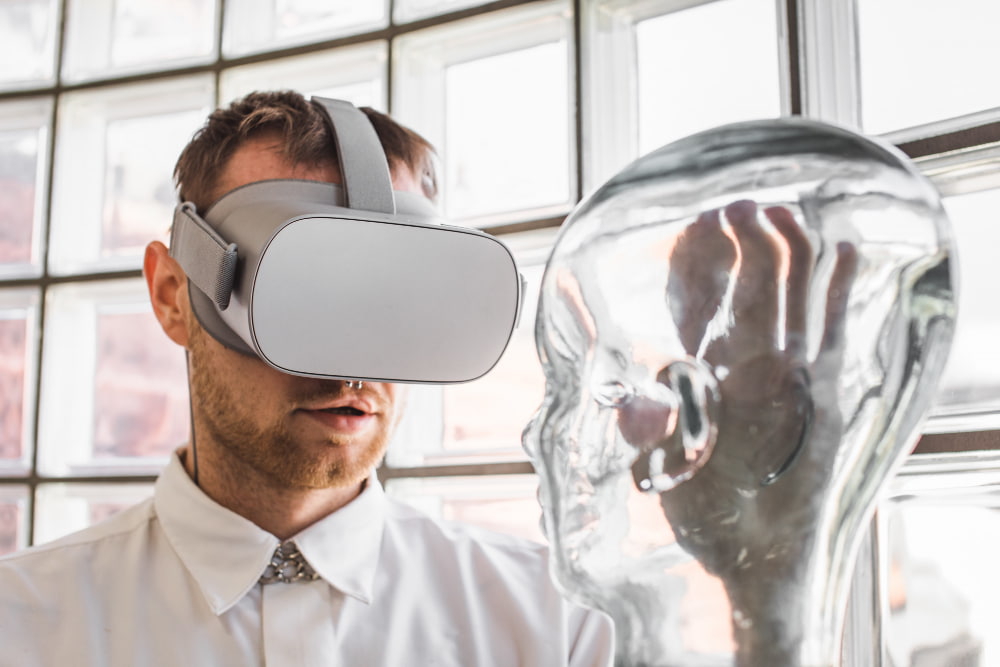The Role of the Creator Economy in the Metaverse
Table of Contents:
The idea of the metaverse has been circulating for some time now, most notably since Facebook announced that it would be changing its name to Meta. However, content creators are already involved in early metaverse technologies, with the Roblox platform in particular attracting popular creators such as KreekCraft and LeahAshe, who are keen to benefit from its roughly 54 million daily users. 3D platforms like this provide them with a level of freedom that simply isn’t possible in other environments and, as a result, the possibilities for new and exciting audience experiences are almost endless. In this article, we will look at how content creators are shaping the metaverse and what could be in store for the future.
What is the creator economy?
In these modern times, almost all of us use the creator economy, even if we don’t know what it is. Essentially, it’s the economy where content creators are supported directly by their audience through platforms such as Patreon, YouTube, or Twitch, with no one pulling the strings in between. So, musicians work independently of the whims of record labels, and journalists work free from the editing pressure of newspapers. This, along with technologies such as NFTs and blockchain (see previous Mazer blog posts on these topics: The Role Of Blockchain In The Metaverse, The Metaverse And NFTs: What Are They And How Do They Work), has given people far more freedom to create what they want, with content decisions being influenced by both the creator’s ideas and the audience’s likes and dislikes, rather than what some corporation desires. This makes the whole process of content creation more democratic, which is perfect for the metaverse as many envisage that it will be decentralized and democratized.
Ultimately, creators will be able to earn money for their work independently of any hosting platform, which is seen as one of the big advantages of Web 3.0 – people will no longer have to rely on centralized platforms to provide and make use of services. So, the creator economy could boom within the metaverse, and with some estimates valuing this marketplace at more than $100 billion, those building metaverse solutions for business will surely integrate content creators into their work.
Connecting with the community
For content creators, connecting with their communities is the most important thing. However, to do so authentically can be difficult when you’re on a screen and not in person. The metaverse will offer the potential for far more immersive connection with audiences, allowing creators to build much more integrated and tight-knit communities. They will be able to come together in 3D meetups with their community members from all over the world with no restriction on numbers – something which was impossible before the metaverse existed. They can even build their own virtual worlds within which to do this, allowing them to create truly unique and immersive experiences for their fans.
Musical duo Twenty One Pilots recently performed an interactive concert in the metaverse with attendees from more than 160 countries. More than a simple music show, they really took advantage of the community engagement tools offered by the metaverse, jumping between servers to interact with as many fans as possible, as well as doing a Q&A with their fans after the show. These really are pioneering virtual experiences.
Translating the real into the digital
Almost anything that can be made in the real world can also be made in the digital world. It may not always be something that we want to create or that would be useful, but if it can be done, the chances are someone has done it or is figuring out how. Roblox, Decentraland, and other virtual worlds have already proved that people are willing to pay money for virtual assets, not to mention the rise of NFT art and other non-fungible items. Creators such as MeganPlays are taking advantage of this fact. She has crafted her own run of fashion items for digital avatars, which are being sold via the Roblox Marketplace. This kind of entrepreneurial spirit is common on early metaverse platforms, as over 29 million virtual experiences have already been created on Roblox alone.
Unlock the future with Mazer: Your innovation partner.
Creator economy in the metaverse is good for business
For companies developing metaverse solutions for business, retail, and other industries, this is good news. If the metaverse becomes a common place for people to purchase digital items and content, brands can partner up with creators and use endorsements to harness the power of their communities to reach customers all over the world. And if your products are digital ones, then it’s an even better deal for you, since digital assets can be delivered instantaneously, with no worries about delivery costs, complicated and expensive supply chains, or problems with shipping internationally.
However, with Meta planning to keep around 50% of the gross value of digital asset sales on its Horizon Worlds platform, creators will have to be careful which brands they team up with if they want to get the best returns on their work. Of course, digital content creators and artists will always need tech firms to provide them with the space to do their work. After all, without the technology, the creators have nothing. This is where companies like XR Wizards come into play. With their Mazer platform, they can help you create a metaverse space (or Mazer space) for your company or business idea – you give them the content; they give you the space to implement it. But these tech companies are also lost without the creators – without them, there would be no content and these wonderful metaverse spaces would be empty.
New Opportunities
While the metaverse may be good for existing businesses, it is also a land of opportunity for those with drive and a good idea. As well as creating her own avatar clothing, MeganPlays set up a development studio, Wonder Works Studio, which aims to build new and engaging metaverse experiences on Roblox and other social gaming platforms. They recently partnered with music producer and promoter Insomniac on the Electric Daisy Carnival, a huge metaverse dance music festival. This and other creations have already received hundreds of millions of views, and this trend is likely to continue as the word spreads.
Indeed, metaverse platforms are keen to support content creators in such endeavours, knowing that they are the people helping the metaverse to grow. Roblox has set up an influencer program to help creators monetize their work, while others simply make money from creating digital experiences or products. But this is all sure to change and evolve as the metaverse develops as well. In Roblox, the focus is on gaming experiences, but other platforms contain digital real estate, host fashion shows, and hold conferences and lectures. Content creation goes far beyond gaming – it’s all about the user experience, whatever that may be. As more and more industries get involved in the metaverse, these experiences will develop and grow, so who knows how and what creators will be able to sell in the metaverse spaces of the future.
Final Thoughts
In the metaverse, content creators will be able to craft new ways of doing business, build huge and loyal communities, and offer futuristic experiences that have never been seen before. It is fair to say that they will play a huge role in the virtual worlds of the future, perhaps even becoming the backbone of the metaverse, along with tech firms like XR Wizards. The best thing for content creators is that anyone can get involved. The democratized and decentralized nature of metaverse platforms means that there is an open world free for anyone to make use of. Now is the time to switch up from a flat, 2D screen to the immersive 3D world. So, get those creative juices flowing and maybe you could be the next metaverse content creator.
Read also: What Is A Metaverse Avatar
What is the creator economy?
The creator economy refers to an economy where content creators are supported directly by their audience through platforms such as Patreon, YouTube, or Twitch, with no intermediaries like record labels or newspapers. This economy allows creators more freedom to create what they want, with content decisions being influenced by both the creator’s ideas and the audience’s likes and dislikes, rather than what a corporation desires. It makes the process of content creation more democratic, which is perfect for the metaverse as many envisage that it will be decentralized and democratized.
How can content creators connect with their audience in the metaverse?
The metaverse offers the potential for far more immersive connections with audiences, allowing creators to build much more integrated and tight-knit communities. They can come together in 3D meetups with their community members from all over the world with no restriction on numbers, something which was impossible before the metaverse existed. They can even build their own virtual worlds within which to do this, allowing them to create truly unique and immersive experiences for their fans.
How can the creator economy benefit companies developing metaverse solutions for business?
For companies developing metaverse solutions for business, retail, and other industries, the creator economy is good news. If the metaverse becomes a common place for people to purchase digital items and content, brands can partner up with creators and use endorsements to harness the power of their communities to reach customers all over the world. If your products are digital ones, then it’s an even better deal for you, since digital assets can be delivered instantaneously, with no worries about delivery costs, complicated and expensive supply chains, or problems with shipping internationally.
Unlock the future with Mazer: Your innovation partner.

Author: Rafał Siejca
Rafal has over twenty years of corporate experience, including roles at Millennium Bank, Comarch, and leading software teams at PZU, one of Europe’s largest insurance companies. As one of Poland’s few true VR experts with a decade of experience, he ensures timely, high-quality project delivery as CEO and CTO.










